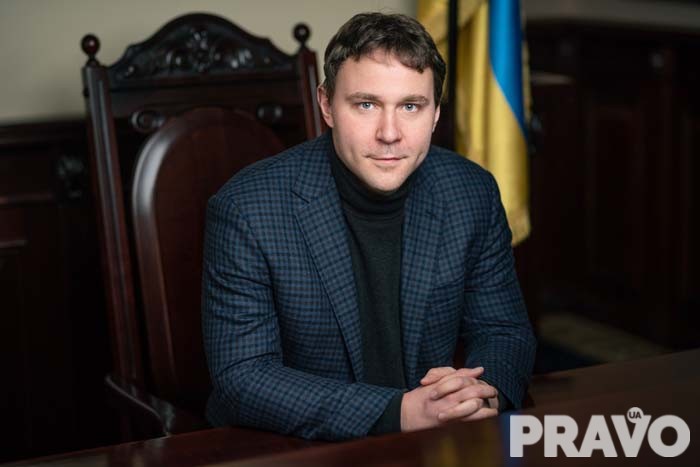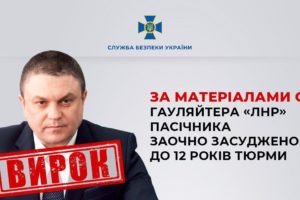


Selection mission

On February 4, 2022, started the first-ever competitive selection to fill vacant positions of members of the High Qualification Commission of Judges of Ukraine (HQCJ). This competitive selection and the actual resumption of the HQCJ have been awaited by the entire legal community and ordinary citizens for more than two years.
The documents for participation in the competitive selection can be submitted until March 4 this year.
Ivan Mishchenko, Judge of the Supreme Court, Deputy Chairman of the Selection Commission for the Selection of Candidates for HQCJ (Selection Commission), told Legal Practice how this competition will take place and what requires special attention while preparing documents for participation in it.
— Which of the legal profession representatives will be able to take part in the competitive selection for vacant positions of members of the HQCJ?
— According to the Law of Ukraine “On the Judiciary and the Status of Judges”, a member of the HQCJ may be a citizen of Ukraine who speaks the state language, has higher legal education, 15 years of professional experience and meets the criteria of integrity and professional competence which are stipulated this by the law. The length of service requirement applies to all legal professions. However, it should be borne in mind that half of the HQCJ’s composition should be judges. It should include eight judges and eight representatives of other legal professions (lawyers, scholars, civil servants, prosecutors, etc.). Representatives of any legal profession that meet these requirements have the opportunity to test themselves.
— How soon do you plan to complete the competitive selection, and what are your assumptions about the actual start of the new HQCJ?
— Apparently, this is the central question that has been on everyone’s mind. As for the commission’s work, it can be divided into three stages. The first stage is the processing of applications. Applications will be accepted from February 4 to March 4 this year. They will then be processed by the Secretariat of the High Council of Justice (HCJ) and the Selection Commission. At this stage, anyone can send the Selection Commission both positive and negative feedback on candidates. This stage will end when the commission selects approximately 64 applicants invited for interviews. It will be the second stage of conducting interviews and selecting 32 candidates the HCJ will recommend for the appointment. And the HCJ will appoint 16 members of the HQCJ. Ideally, the work of the Selection Commission should be completed in August – September 2022. Further formation of the final composition of the HQCJ, and hence the beginning of its activities, will depend on the actions of the HCJ
— Will candidates be tested to determine their intellectual level and/or general skills?
— The Selection Commission has not decided this yet. It will depend on the technical conditions of such testing. From my own experience, the intellectual ability test I took in the Supreme Court competition lasted 40 minutes. The contestant and the Selection Commission receive the results a minute after completing such testing. It will take a maximum of one week for all the results of all candidates to be fully processed. No additional training is required to perform this test, although you can try your hand online. Of course, the test will be adapted to the specifics of the future activities of the contestants. Such experience was used during the competitive selection to the Prosecutor’s Office, the Specialized Anti-Corruption Prosecutor’s Office, the National Anti-Corruption Bureau of Ukraine, etc. That is, it is gradually becoming a well-established practice. But if we conclude that such testing will significantly prolong the competition procedures, then it is inappropriate to conduct it. The decision is likely to be made in March, although it is difficult to predict. We decided to abandon psychological tests in this competition.
— Many of the candidates will fill out and submit a declaration of their property status for the first time. What are your life hacks for completing this document?
— I don’t know if there are any life hacks for this process. It is not easy, especially if you are filling out a declaration for the first time. The difficulty in completing the declaration lies in complying with the technical requirements set by the National Agency on Corruption Prevention (NACP). Every year there are questions related to this. For example, in which column to provide this or that information, whether to record all the information, etc. However, the completeness of the information will be more important for the Selection Commission. The suitability of the candidate’s assets for his standard of living will also be checked. Of course, the Selection Commission is not the NACP; it will not be approached purely formally. Technical errors in numbers dates will not be significant. It is necessary to provide the most complete and reliable information in the declaration to avoid awkward questions during the interview. But the fact that we will not have questions does not mean that NACP will not have them. However, the NACP will only be able to verify the declarations of civil servants or become members of the HQCJ.
— Is there a specific list of documents that the Selection Commission will accept to confirm the duration of professional activity?
— There is no specific list of documents confirming the duration of professional activity. Any documents are appropriate, especially considering that keeping employment records is not mandatory. As far as I remember, there were no special requirements for these documents during the competitive selection to the Supreme Court. But those who applied as a lawyer were required to provide copies of court decisions in the cases in which they participated for each year of their legal practice. There were some technical problems with this. Those who started their activities a long time ago should have received such copies from the archives but not from the Unified State Register of Court Decisions. Not all courts immediately mentioned the names of the lawyers involved in the case. But as a result, there were no problems with confirmation of professional experience. If there are any technical questions, it is better to contact the Secretariats of HCJ and the Selection Commission.
— What are the criteria for deciding not to allow candidates to participate in the competition?
— This first technical stage concerns the correctness and completeness of the documents submitted. Candidates need to carefully fill out the documents and submit them according to the list specified by law and given in the announcement of the competition. Such decisions will be made in the absence of a document, its incorrect completion or non-compliance of the candidate with legal requirements. For example, the Selection Commission and the HCJ’s Secretariat will check the availability of documents submitted to confirm 15 years of service.
— Can the candidate appeal the decision of the Selection Commission? What are the consequences of such an appeal?
— As for decisions not to admit a candidate to the competitive selection, they can be appealed to the Selection Commission. As for other decisions, the fundamental difference of this competitive selection is the mechanism of “positive selection”. We will decide who will be interviewed and whom we recommend HCJ, not those who are not selected. Our goal is to choose the best of the best. We will focus on the candidates who, in our opinion, are honest and show the highest level of professional competence. A separate decision not to pass will not be made for other candidates. These candidates terminate their participation in the competitive selection. This principle will allow completing all procedures faster. In addition, as a general rule, the employer does not explain to each of the applicants for the vacancy why another candidate was chosen over them.
— Article 10 of the Rules of procedure of the competition for the position of a member of the HQCJ states that the Selection Commission may at any time make changes to the list of candidates admitted to the interview. What cases could those be?
— This is a technical mark. This provision covers cases where a person moves to another country or has health issues. If a person has certain life situations that affect his participation in the competition, we can use such discretionary powers. At the same time, we will try to make a minimum of changes when we form a list of 64 candidates.
— Are there any restrictions on the number of candidates who will be admitted to the interview?
— Candidates are admitted to the interview on multiple bases – a maximum of 4 people for each vacant position. Sixty-four candidates are the approximate number we are striving for. We understand that we have limited powers, but we need to work fast simultaneously. We would like not to reduce this figure so that we have the opportunity to choose. The logic is that we can conditionally reduce the number of applicants to two for one position at each stage.
The conversation was led by Daria GOVORUN, Yuridicheskaya practika
Translated by Selection Commission





Зміст
IP REPORTER
Контроль артбуку
VOX POPULI
Паспортний контроль
Актуально
Правила конференції
Конкурсна місія
Selection mission
Галузі практики
Давня вина
Діловий етикет
Охоронна грамота
Попереджувальний сигнал
Дайджест
Приватні корективи
Держава та юристи
Командна першість
В інтересах дітей
Новини юридичних фірм
Asters оголосила про підвищення юристів до позиції радників
GOLAW запустила аналітичний ресурс «Судочинство в Україні»
Sayenko Kharenko стала партнером ЄБРР у підготовці звіту про реорганізацію бізнесу
Юристи Mamunya IP здобули остаточну перемогу для Synthon B.V. у Верховному Суді в тривалому патентному спорі
Baker McKenzie поглиблює співпрацю з КНУ імені Тараса Шевченка
Приватна практика
Ключовий підхід
Програми взаємодій
Тендерне забезпечення
Судова практика
Виконавче оскарження
Митна диспропорція
Судові рішення
Генеральний прокурор не є правонаступником КДКП
Щодо нюансів визначення юрисдикції спору, якщо частина позовних вимог заявлена як до фізичної особи, так і юридичної особи
Тема номера
Практична робота
Ознаки визнання
Механізм у нормі
Позиційні вимоги
Корпоративна надійність
Важелі мораторію
Інші новини
ВИДАННЯ
© Юридична практика, 1997-2024. Всі права захищені


 Видавництво
Видавництво 


